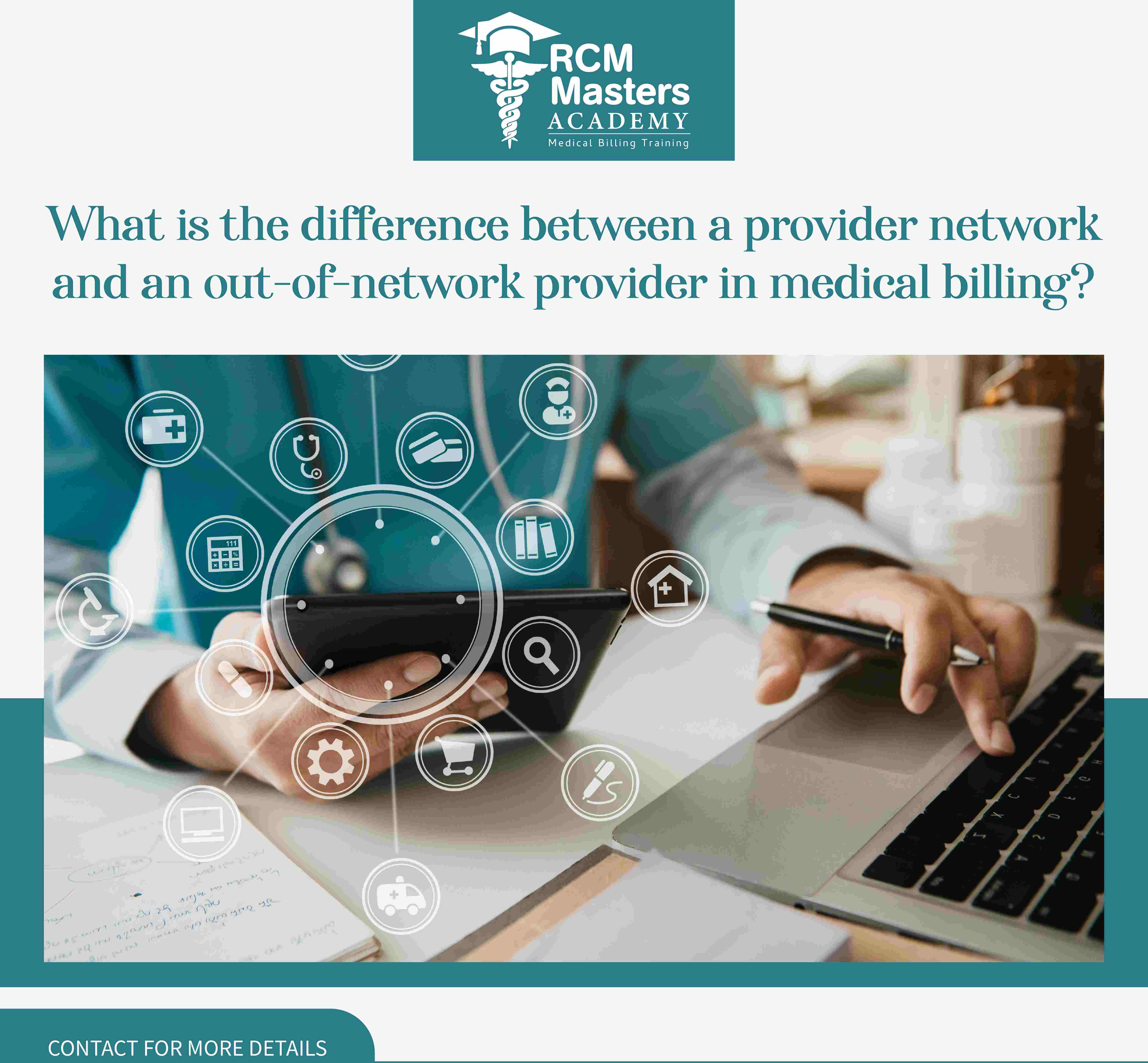 info@rcmmastersacademy.com
info@rcmmastersacademy.com

When it comes to healthcare, understanding medical billing and insurance can be a daunting task. One of the most confusing aspects of medical billing is the difference between in-network and out-of-network providers. Let's take a closer look at what these terms mean and how they can affect your medical bills.
In-network providers are healthcare professionals or facilities that have contracted with your insurance company to provide services at a discounted rate. These providers have agreed to accept the insurance company's approved rate as payment in full, which means you will usually have lower out-of-pocket costs when you see an in-network provider. In-network providers are also referred to as participating providers.
Out-of-network providers, on the other hand, are healthcare professionals or facilities that do not have a contract with your insurance company. This means they do not have to accept the insurance company's approved rate and can bill you for any amount they choose. Because out-of-network providers are not bound by a contract, you may end up paying more out-of-pocket costs when you see an out-of-network provider.
One way to understand the difference between in-network and out-of-network providers is to think of your insurance company as a club. If you go to an in-network provider, you're a member of the club, and you get the club's discounted rates. But if you go to an out-of-network provider, you're not a member of the club, and you'll have to pay the provider's full rates.
Another way to understand the difference is to consider the insurance company's role in the billing process. When you see an in-network provider, the provider bills the insurance company directly, and you only have to pay your co-pay, coinsurance, or deductible. But when you see an out-of-network provider, the provider may bill you directly for the full amount, and you'll have to submit a claim to your insurance company to be reimbursed.
It's important to note that some insurance plans may offer out-of-network coverage, but you may still have to pay a higher percentage of the costs or meet a higher deductible. It's always a good idea to check with your insurance company before seeing an out-of-network provider to understand your out-of-pocket costs.
So why would someone choose to see an out-of-network provider? There are a few reasons. One is that the provider may offer specialized services or expertise that you can't find in-network. Another is that the provider may be located closer to your home or work, making it more convenient to see them. And finally, some people may simply prefer to see a certain provider, regardless of whether they are in-network or out-of-network.
In conclusion, understanding the difference between in-network and out-of-network providers is essential for managing your healthcare costs. While seeing an out-of-network provider may be necessary at times, it's always a good idea to check with your insurance company to understand your out-of-pocket costs before making an appointment. By staying in-network whenever possible, you can save money and still receive high-quality healthcare services.
You can enroll for our Online Medical Billing Training here: